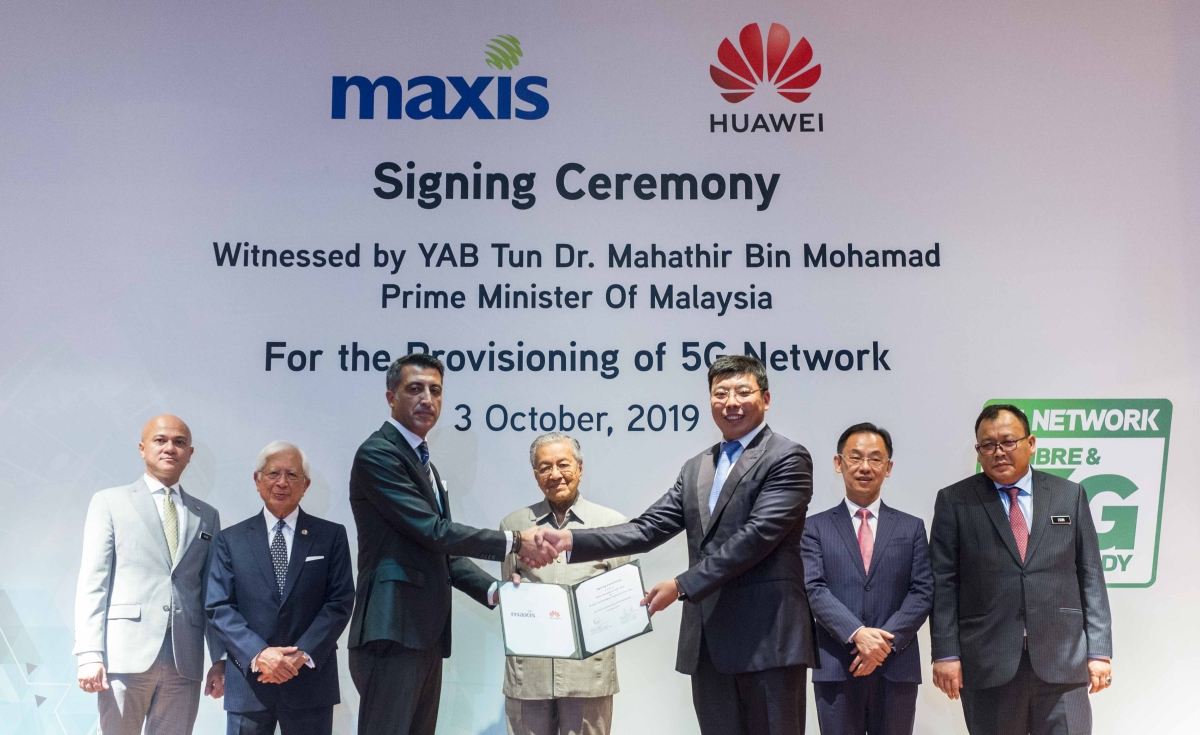Financial Times (FT) reports that Huawei wants in with Malaysia’s 5G rollout which now has an expedited timeline to achieve 80% 5G population coverage by the end of this year. According to FT, three people briefed on the situation confirms that Huawei is among those lobbying for a role in Malaysia after the government announced a review of the current 5G deployment plans via state-owned Digital Nasional Berhad (DNB). Ericsson is currently the sole 5G vendor appointed by DNB.
One of FT’s sources said, “It is a mixture of soft power and outright lobbying to try to get the adoption of their systems somewhere in the rollout.” It is said that Malaysia’s 5G plans have become a test of its relations with China and the west and it will be a challenge to Malaysia’s reputation for respecting the sanctity of commercial contracts.
As Malaysia has yet to conclude its review of the current 5G deployment plans, there are a couple of possibilities to speed up 5G rollout. This includes privatising DNB by allowing telcos to hold a larger stake, which essentially leads to a private-led consortium, which was the initial 5G plan mooted by the previous Pakatan Harapan administration. Another option is to adopt a Dual Wholesale Network (DWN) or allow individual telcos to build their own network.
It was also recently reported that DNB is considering of appointing a second 5G vendor such as Huawei, Nokia and ZTE to reduce cost and speed up 5G deployment. Apparently, DNB isn’t exclusively tied to Ericsson and there’s a provision in the contract to introduce a second network provider. The current 5G rollout under DNB is estimated to cost RM16.5 billion over a period of 10 years and it aims to achieve 80% 5G population coverage by the end of 2024. This includes a cost of RM4 billion for Ericsson’s network equipment, deployment services, and ongoing maintenance and network management.
Previously, Anwar Ibrahim criticised DNB’s appointment of Ericsson and he claimed that Huawei could do the same job for far less. DNB defended its 3-month tender process revealing that out of 8 invited players, only four submitted bids. Eventually, Ericsson came out on top for technical, commercial and socioeconomic factors, and the estimated cost is around RM700 million lower than the next closest bid.

In late 2019, Maxis signed a provisional 5G agreement with Huawei for the supply of 4G and 5G equipment to ensure that its network is ready for 5G deployment as soon as the 5G spectrum is awarded. Other telcos such as TM, Celcom and U Mobile have also signed collaborative agreements with Huawei to step up 5G readiness.
[ SOURCE ]
Related reading
- Fahmi: DNB has spent RM1.89 billion and delivered 3,906 5G sites as of 31 Dec 2022
- Jo Ghani: Malaysia doesn’t need DNB for 5G, just appoint TM
- Malaysia now aims to achieve 80% 5G population coverage by end of 2023, one year ahead of DNB’s schedule
- 5G Malaysia: Govt to ensure DNB is managed more transparently to achieve full participation by telcos
0 comments :
Post a Comment